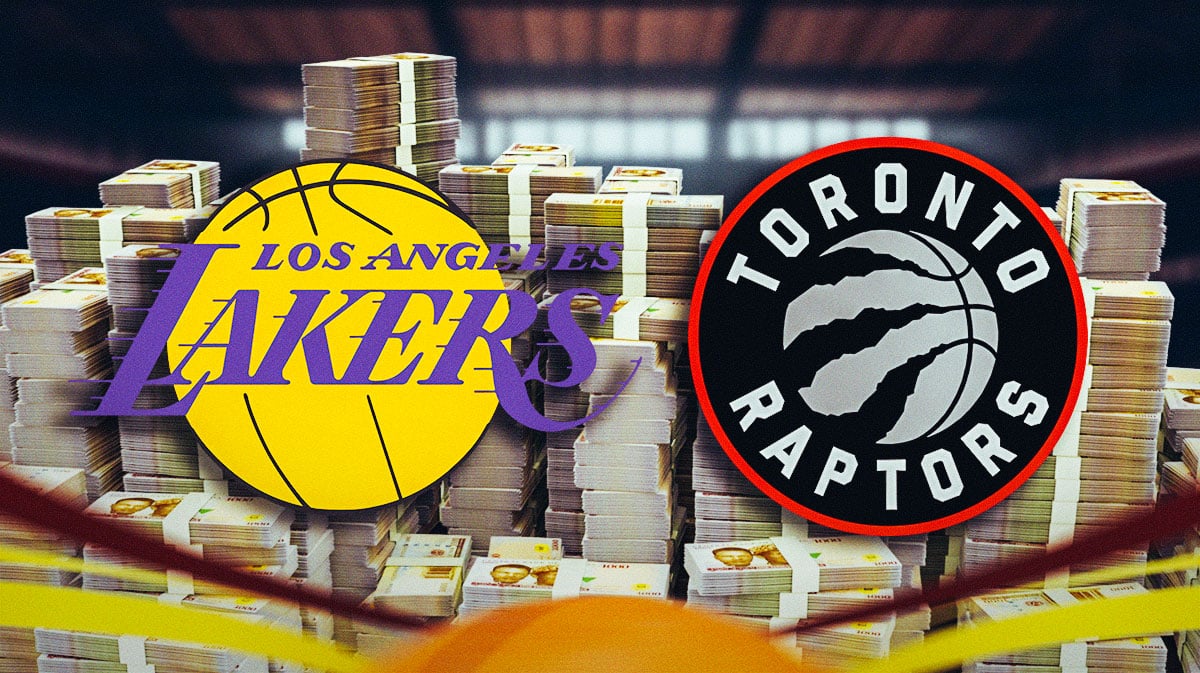


The Toronto Raptors are rebuilding, and in their first offseason since trading Pascal Siakam, Toronto has signed young cornerstone Scottie Barnes to a max extension and re-signed Immanuel Quickley. But the Raptors are reportedly not keen on bringing back Gary Trent Jr., one of their key rotation players over the past few years, at the same price — and that may be the best possible outcome for the Los Angeles Lakers.
While the Raptors have committed a lot of money to Barnes and Quickley — about $400 million over the course of their contracts — Toronto has, according to TSN’s Josh Lewenberg, been hesitant to re-sign 25-year-old Trent, who is an unrestricted free agent following the conclusion of the three-year, $51.8 million contract he signed with the Raptors in 2021.
“Per a source, the Raptors were willing to bring the sharpshooter back at an annual salary of around $15 million when the negotiation window opened last month, but Trent’s camp was looking for a raise on the $18.5 million he made last season,” Lewenberg wrote. “Something in the $25 million range was believed to be the ask, a misread of a market that hasn’t been kind to players of Trent’s ilk – a very good three-point shooter (38 per cent as a Raptor) who has shown flashes in other areas but hasn’t been able to sustain them, especially on defence.
“Now, with the market drying up, one league insider suggested Trent would be ‘lucky’ to get the mid-level exception, valued at $12.5 million. A few reports have linked him to the Lakers, where it’s possible he could only earn half of that.”
Lewenberg reported that while the proverbial door is not completely shut yet — the Raptors and Trent’s representatives are expected to have another meeting this week — the team is “prepared to move on” from Trent.
For a player like Gary Trent Jr., a valuable yet typically replaceable rotation piece, free agency can be a bit like gambling. Some players test the market and hit the jackpot, as seen by Paul George, who signed a four-year, $211.6 million deal with the Philadelphia 76ers after months of extension negotiations with the Los Angeles Clippers. But as seen by Caleb Martin, who reportedly declined a four-year, $58 million extension by the Miami Heat and wound up settling for a deal reportedly worth between $32 million and $40MM.
Trent may soon, unfortunately for him, officially become part of that second group and join Martin. Any $25 million-per-year contract seems almost impossible now, and with teams seemingly being more selective with their mid-level exceptions, it would appear Trent may be taking a pretty steep pay cut wherever he ends up this year. There are several teams that could sign Trent to the non taxpayer mid-level exception, which is worth about $12.8 million in Year 1, but if teams decline to do so, the Lakers could be huge beneficiaries.
Since the Lakers are well into the tax and are right below the second apron, the mid-level exception they can deploy is much smaller than the one a team like the Raptors can. If the Lakers were to give their full taxpayer MLE to Trent, he would earn $5.2 million this season and could only sign for two years at most (non taxpayer MLE deals can be up to four years), although a shorter deal would be best for Trent anyway if he is trying to increase his value for next offseason.
Trent, who began his career with the Portland Trail Blazers before being traded to Toronto during the 2020-21 season, averaged 13.7 points in 28.1 minutes per game and shot 39.3% on threes last year. In terms of availability, Trent has played no fewer than 58 games since his rookie season.
New Lakers coach JJ Redick would certainly love to have a career 38.6% three-point shooter to complement LeBron James and Anthony Davis, especially with the departure of Tauren Prince, who shot 39.6% from three last season in L.A., and the potential exit of D’Angelo Russell, who was the Lakers’ best three-point shooter last season (41.5% on a team-high 7.2 attempts per game).
What kind of pitch the Lakers could make to Trent to lure him away from potentially more lucrative offers remains to be seen. If Trent were to settle for the $5.2 million MLE, the Lakers should expect quite a bit of competition from teams similarly straddling the second apron, which would serve as a hard cap if the taxpayer exception is used.